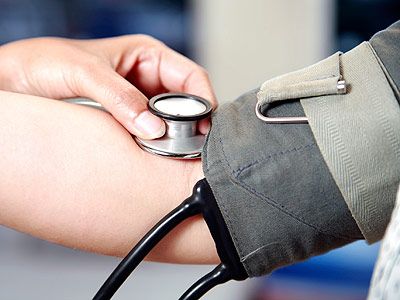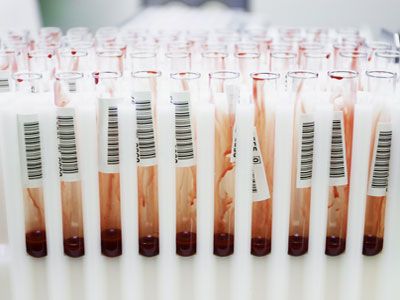
Worried about your heart? Sure, stress, poor diet and genetics all play a role, but there's more to it than that. See the first thing you should do next.
Advertisement

If it's been a while since you've seen a doctor, you should schedule a check-up, especially if you have a high risk for heart disease (elderly, obese, smoker, someone with a family history of heart disease).

Some routine blood work can tell you how your cholesterol is doing. If your levels are high, your doctor will recommend a treatment plan, which may include the medication on the next page.

Lipitor is the most popular statin, or cholesterol-reducing medication, on the market.

Aspirin in low doses also works to help prevent heart attacks by thinning the blood. The American Heart Association (AHA) suggests a daily dose of aspirin to help prevent a first and second heart attack. Next, see natural ways to improve heart health.
Advertisement

Regular aerobic exercise is a great way to improve heart health. Some activities to try include walking, jogging, biking and swimming.

Strength training just twice a week can improve your heart health and burn fat, which can help keep your blood pressure in check.

Make sure you get enough sleep. Lack of sleep stresses the heart and can increase blood pressure. Doctors suggest that you get about 8 hours of sleep per night. See some heart healthy foods on the next page.

Grilled salmon and vegetables are two options for heart healthy foods. Vegetables are full of dietary fiber that helps prevent clogged arteries, and Omega-3 fatty acids in salmon help control blood pressure and reduce bad cholesterol levels. Other heart healthy foods include whole grains, fruits, legumes and nuts.

Cooking with olive oil can also lower cholesterol, control metabolic syndrome and lower your blood pressure.
Advertisement

Cutting back on unhealthy foods is another step toward a healthier heart. A burger and fries are loaded with cholesterol.

You should also limit your salt intake as sodium is associated with increases in blood pressure. Try to limit your consumption to about one teaspoon of salt per day.

Another great way to improve your heart health is to stop smoking. Smoking has been shown to increase blood pressure and starve your heart of oxygen. See the next page for more lifestyle tips.

When traveling, it's a good idea to get up and move around on a long flight. Blood clots that result from long periods of sitting in one place are fairly common and can lead to a heart attack. If you have leg pain after a long flight, seek medical attention right away.

Finding ways to relax and lower stress can also reduce your risk for heart disease. Yoga is well-known as a stress-busting workout, but any stress-relieving activity or a needed vacation will do.
Advertisement

Make sure you also know your family's medical history as some people have genetic predispositions to heart disease. Interview and record chronic illness, diseases and surgeries of siblings and older generations.

While heart attacks happen year-round, they are more common during winter holidays. At first sign of a heart attack, contact 911 and get medical help. See 5 Heart Attack Symptoms to learn more.